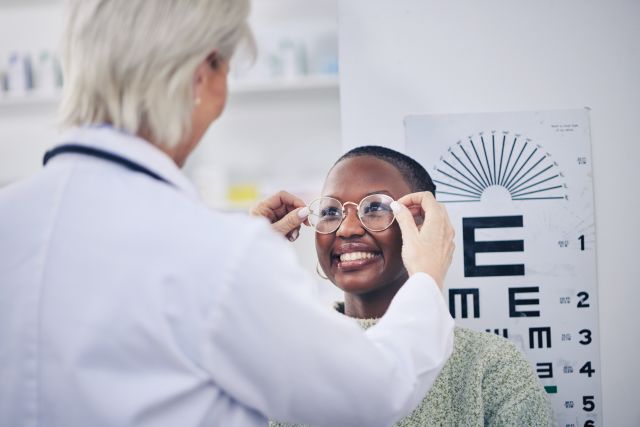Updated on July 1, 2025.
Time to get your eyes checked? You have a choice to make. There's more than one type of eye specialist you can visit, and each has different credentials, skills, and specialties.
To help you choose, here's a quick look at the three main types of eye care professionals and what each of them can do for you:
Opticians
Opticians are technicians who have a two-year technical degree that prepares them to work in an optometrist or ophthalmologist office, or at an eyeglasses distributor.
Opticians are trained to read vision-correction prescriptions. They can supply you with contact lenses or fit you for eyeglasses or other eyewear, like prescription sunglasses. Opticians can also make repairs and adjustments to eyeglasses.
Optometrists
Optometrists are doctors of optometry who have have an OD (doctor of optometry) credential. In addition to an undergraduate degree, they have a degree from a college of optometry.
Optometrists provide comprehensive eye exams. They can diagnose and treat common vision problems and certain eye conditions, as well, and provide care before and after eye surgery. Optometrists can prescribe glasses, contact lenses, eye exercises, vision aids and therapy. In some states they can also prescribe medications to treat certain eye diseases.
Ophthalmologists
These doctors of the eye have graduated from medical school. Ophthalmologists are licensed to practice medicine, so their credentials are either doctor of medicine (MD) or doctor of osteopathy (DO).
Ophthalmologists have been trained in all areas of eye care. They can:
- Do vision exams
- Prescribe all forms of vision correction
- Diagnose and treat all types of eye problems, injuries, and diseases
- Perform surgery
Some ophthalmologists specialize in certain aspects of eye medicine, like neuro-ophthalmology (eye problems linked to the nervous system). Others focus on treating certain diseases, like glaucoma.
Depending on your needs or preferences, you may have appointments with each type of eye specialist at different points in your life. It's good to know what training and skills to expect from each, so you'll feel prepared for your visits.






